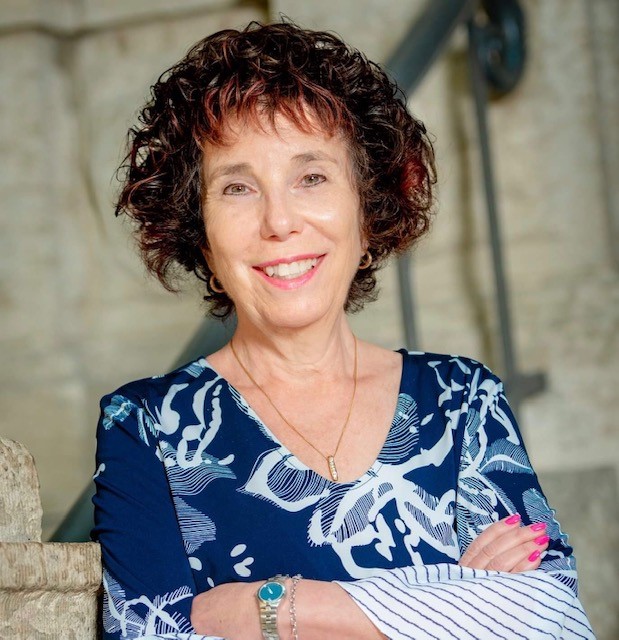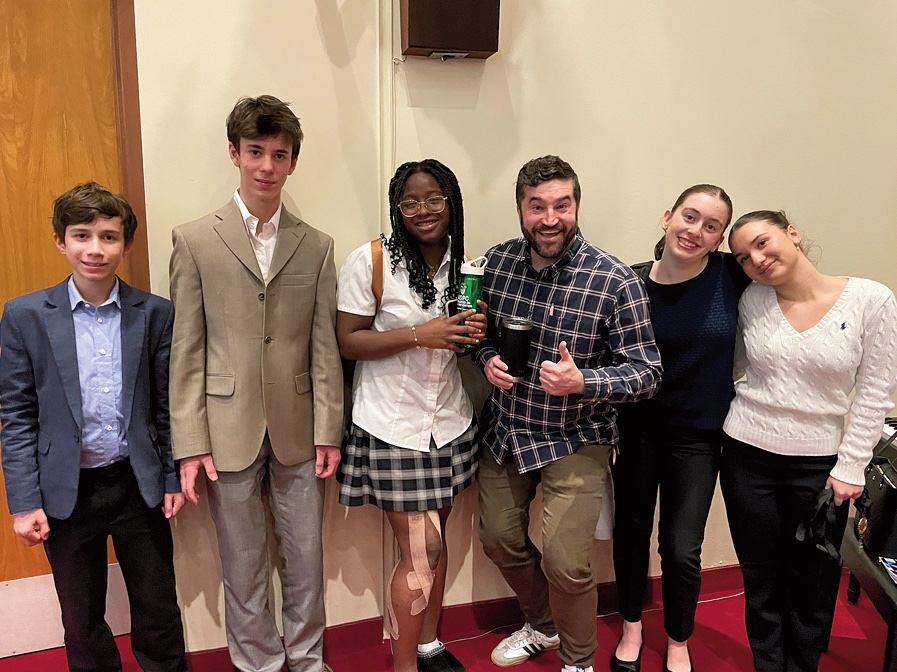Local News
Camp Massad and BB Camp adjust – again – to Covid restrictions
 By BERNIE BELLAN After a summer in 2020 that saw our two Jewish sleepover camps have to cancel all overnight stays for campers, this summer, our community’s camps are preparing for the worst and hoping for the best.
By BERNIE BELLAN After a summer in 2020 that saw our two Jewish sleepover camps have to cancel all overnight stays for campers, this summer, our community’s camps are preparing for the worst and hoping for the best.
While some children may be unable to attend camp with their friends – which undoubtedly comes as a huge disappointment once again, this year both camps had prepared contingency plans quite some ago in anticipation of the possibility of not being allowed to have regular overnight camps.
In some instances, instead of children attending camp on their own, this summer families are being invited to come out to both camps and spend a few days together either on Town Island (BB Camp) or Sandy Hook (Massad).
Recently I spoke with the directors of both camps to find out what they have planned for the summer and whether there is any possibility that there may be a normal sleepover camp at all this coming summer.
Jacob Brodovsky and Lexie Yurman are Co-Executive Directors of BB Camp, having assumed their official duties on January 1 this year (and, as we noted in an article in our Feb. 3 issue – are the first married couple to be in charge either of BB Camp or Massad).
Jacob and Lexie said that, while they aren’t optimistic that the Ontario government will lift all restrictions that have been imposed as a result of Covid, there are still reasons to be hopeful that they will be able to run some form of Second Session, AC and LTP programs at the camp this summer. When I asked them whether there is any chance the popular day camp program – which sees children brought out to camp each day by boat from Kenora, could be offered, the answer was, “We’re still waiting to see how things will look in June and July.”
As well, I asked what would happen if the Ontario government keeps the border closed to visitors from other provinces – as is currently the case, and while Jacob and Lexie indicated that is a huge concern, the planning process began long ago, long before the border was closed – so naturally the hope is that by July the border will be reopened.
In the meantime though, Jacob and Lexie have developed a program known as “BB Bed & Breakfast”, which has already garnered a terrific response, they said. As of May 5, 140 individuals were on the waitlist for 3-night stays at BB Camp with registration slated to launch at the end of May, hopefully once there is some clarity re the border. On hand to work with families will be almost a full complement of BB Camp staff, Jacob said, which will be from 60-70 in number. “The idea is to get our staff trained, and our island open so if and when the time comes that we can pivot back to our conventional overnight camp programming, we’ll be ready to do so at a moment’s notice”.
Here is material taken from the BB Camp website that describes what BB Bed & Breakfast will offer:
Treat your family to an all inclusive getaway where you will learn new skills, immerse yourself in the outdoors, and grow closer as a family. We’ve taken the best parts of a traditional sleep-away summer camp program to offer a unique and unforgettable family cabin rental experience.
Parents are welcome to join their kids in camp activities, or catch up on remote work while our camp staff buddy up with their children for the day. There will also be adult-only programming offered throughout your stay.
Enhance your stay at camp with a family canoe trip following your family camp session! Choose from a 2 or 4-night canoe trip. Our staff will lead you through the whole process from packing out your own food and equipment, to navigating, cooking, and properly setting up a camp site.
Conquer the climbing tower, learn to stern a canoe, or play on our giant water inflatables, the choice is yours! Families will sign up for activities and be able to customize their stay to their liking. Our friendly staff will be there every step of the way to ensure you leave camp rejuvenated and reconnected to the wilderness!
Take advantage of our beautiful island location by adding a fishing excursion, or enrol your children in Swimming Lessons taught through our partnership with Aqua Essence. Again, the choice is yours to make BB Camp everything your family is looking for in a summer escape!
Available activities will include:
Nature Hikes
Paddle Around the Island
Outdoor Cooking Lessons
Judaic Programming
+
Shabbat
Fishing Excursions*
Aqua Essence SwimmingLessons*
*Additional fees
The all-inclusive package that BB Camp is offering includes:
Breakfast, Lunch, and Dinner
Plus 3 Daily Snacks
Daytime Childcare
Access to ‘Work from Camp’ Spaces + WIFI
Adult and Youth Programming
Staff-led Cookout & Bonfires
Traditional Burning of the Bs
Camp Activities:
Ropes Course – Climbing Wall -Water Toys – Canoeing -Kayaking – Swimming – Arts &Crafts – Sports – Tripping –Archery
For more information on BB Bed & Breakfast check out the BB Camp website – www.bbcamp.ca, call 204-477-7512 or email info@bbcamp.ca
Danial Sprintz is Executive Director of Camp Massad (now in his 11th year in that position), while Drew McGillawee is Director of Planning & Programming (in his third year in that position).
While the camp may not have held either of its normal two sessions last year, work at the campsite has continued apace nonetheless to improve facilities, in large part due to a grant from the Jewish Foundation earmarked for infrastructure improvements.
Of course, with the hope that vaccinations would allow some semblance of normal camp activity to resume, Danial Sprintz said that the camp board had been in constant consultation with Manitoba Health and various government officials to see whether there was any way sleepover camp could resume this summer.
The decision was made to cancel normal camp because there just wouldn’t be enough time to allow for proper planning even if Covid restrictions were to be lifted by the summer, Danial says.
I asked him though whether the cancellation of camp applied to Massad’s day camp as well (about which I had written last summer). And, although the day camp did prove successful – and complied with all provincial requirements for maintaining proper social distancing, Danial said it was very expensive to have to adhere to all the regulations that the province required – so the decision was taken not to go ahead with a day camp this summer.
However, just as BB Camp is offering an attractive alternative for families, Massad is also offering its cabins for families to rent – anywhere from a weekend (Friday – Sunday) to a weekday experience (which can vary in length).
According to the Massad website, “Family rentals will include all the activities that Camp Massad has to offer as well as food and a personal family cabin equipped with comfortable amenities.”
Those amenities include: Tennis Courts, Basketball Court, Soccer Field, Volleyball Court, Archery Range, Tetherball, Nature Trails, Canoe and Kayaking on Lake Winnipeg, Fire Pits and Art Studio, as well as swimming in the Heated Outdoor Pool, Daily Adult and Youth Programming, Optional Child Care, Judaic Programming, and Wifi. Breakfast, Lunch, Dinner, and 3 snacks each day will be provided.
But, rather than attempt to offer a second session for regular campers in August – which is still BB Camp’s hope, Danial says that August will be devoted to providing training for camp staff. “We’ll have gone on for two years without staff getting the chance to get any training,” he says. “We want to make sure that they get that training for next year’s camp.”
Both camps have received a great deal of financial support, both from government and from non-governmental organizations.
Danial pointed to two specific programs from which Massad was able to receive funding: The “Green Team” program and the “Canada Summer Jobs” program. Both programs will enable Massad to pay their entire staff complement for at least part of the summer.
As well, both BB and Massad received funding from the Jewish Federation that will help to keep their camps operating this summer.
Danial also pointed out that both camps are able to offer financial help to families that might not be able to afford their family programs this summer. Some money, as it has in the past, is available through the “Sunshine Fund”, while other financial assistance has been made available from other sources as well. Interested parties should contact either camp about subsidies that might be available.
While July has already been heavily booked by families looking to spend some time together at Massad, the camp will actually be available to families beginning June 11.
When I asked whether it’s possible for a family to spend more than five days at Massad at one time, Drew McGillawee said that one family has actually booked two consecutive weeks at the camp.
And, despite all the hardship that Covid has caused both camps, Danial said that the difficult situation in which both Massad and BB Camp have been put has let to what he described as an “unprecedented level of cooperation and planning” between the directors of both camps (which helps to explain why both camps came up with almost identical family camp programs for the coming summer).
As Danial noted, it’s not only the camps that have been working together, “all Jewish community organizations” have been working together closely in ways that they had never done before.
For more information about Camp Massad’s summer rental program for families either call 204-477-7487 or email info@campmassad.ca .
Both camps have detailed information about their upcoming summer family programs on their websites.
Local News
Cheryl Hirsch Katz, Jewish Child and Family Service’s longest serving staffer, set to retire at end of the month

By MYRON LOVE “I loved working at Jewish Child and Family Service,” says Cheryl Hirsh Katz, who is due to retire at the end of June. “I have always appreciated the warm and welcoming atmosphere here. I feel that the people working here are my extended family. I am going to miss my colleagues”.
“I have derived great satisfaction over the years to have been able to help many people in our community of all ages through my work at JCFS,” she continues.
After 44 years at the agency, Katz, the longest-serving member of the staff, was given an appreciative send-off at the JCFS’s recent (June 23) Annual General Meeting at the Shaarey Zedek Synagogue.
The daughter of Art and Bess Hirsh, Cheryl grew up in Garden City. She attended Peretz School, then Jefferson Junior High and Garden City Collegiate. She joined the staff of JCFS in 1981, shortly after receiving her Bachelor of Social Work degree.
She earned an MSW in 1990.
“I chose to become a social worker,” she recalls, “because I always wanted to be able to help people.”
Katz was originally hired by JCFS to work with newcomers. After a couple of years, she was given responsibility for looking after the needs of older adults.
“I really enjoyed working in older adult services,” she says. “That is where I spent the bulk of my time at JCFS.”
After ten years as a case worker, she was promoted to a supervisory role. Later, she was also given responsibility for mental health and addictions programming and settlement services, while keeping the older adult files under her purview.
“As a supervisor, I wasn’t directly involved with individual clients,” she points out. “I was more involved with programming. Among the programs for seniors we organized were – for example – sessions on elder abuse, digital storytelling and memory loss.”
She notes that one of the trends she has seen over the last 44 years is that people are living longer and living in their homes longer. A lot more of our clients are living well into their 90s,” she observes. “We have had to continually expand our staff and the services we provide in order to accommodate the growing demands of an aging population.”
She also spoke of the mental health needs of seniors and aging Holocaust survivors.
She says that she has mixed feelings about leaving JCFS. “After so many years working full time, I am going to have to create a new routine,” she comments.
She notes that, now that she is retired, she will have more time to spend with her parents – who are in their 90s.
And then, there are the two dogs to look after. “I will have time now to try new activities,” she says. “ I might learn to play mah-jong.”
She speaks about maybe doing some traveling – although her husband, Murray, is still working full time.
(She and Murray have one daughter, Farah.)
“Retirement may also include some volunteering,” she adds.
It is quite likely, she will be continuing her association with JCFS but in a volunteer capacity.
Local News
Gray Academy students shine in provincial, national debating competitions

By MYRON LOVE It has been another good year for Gray Academy’s high school students who participated in provincial and national debating competitions. The best results were recorded by Grade 9 student Noa Mednikov, who finished fourth overall nationally, fourth in interpretive reading, and fifth in persuasive speaking at the junior National Public Speaking Championship in early May in Vancouver.
Last October, in the Junior Provincial British Parliamentary Championship – which was held at St. John’s-Ravenscourt – Noa and her partner, Raya Braunstein, finished third as a team while Raya placed third in individual debating.
Their fellow Grade 9 student Maxim Moscalenkov tied for first in persuasive speaking in Vancouver, while the Gray Academy team of Gabe Tapper and Aaron Koplovich finished fifth. Aaron also finished fifth in his individual debate.
Earlier, in March, Maxim finished fifth in the Provincial Juniors debating competition, which was held at Balmoral Hall He and his debate partner, Nate Shenkarow, finished seventh among the teams entered. Last November, he and partner, Ethan Tenenbein, finished seventh in the Junior Prepared Tournament – just behind the Gray Academy team of Nate Shenkarow and Jack Kay.
At the senior high level in that competition, the team of Jacob Tenenbein and Jonah Novoseller finished fourth and Jacob was recognized as fifth best in an individual capacity. Jonah and Jacob also paired up to win the Asper Cup, which was held at their home school.
Jacob represented Manitoba at the Junior National Speech Championship in Vancouver in May and, last October, he and Grade 12 Gray Academy students Julie Krozkin and Daniel Bokser represented Canada at an international debating tournament in Bermuda.
Gray Academy’s debating program was introduced by Linda Martin in 2003. She also led the debating teams at Balmoral Hall. In 2011, Martin was succeeded by Gray Academy high school English teacher Andrew Kaplan.
“Andrew has done a wonderful job with the debating program” says Martin, who has a debating trophy at Gray Academy named in her honour, as well as a provincial trophy for best individual junior debater. “Over the years, Gray Academy students have done very well in many local, national and international competitions,” she adds.
About three weeks ago, this writer had the opportunity to sit down with Andrew Kaplan and six of the school’s top debaters while they discussed the benefits of learning how to debate. According to Noah Strauss – who competed in the Junior Provincials at Balmoral Hall in March, public speaking leaves him with a feeling of accomplishment.
“It’s a good skill set to have,” he observes. “It builds confidence.”
“A benefit of being able to debate is that you learn how to convince people that you know what you are talking about,” adds Maxim Moscolenkov.
Raya Braunstein notes that being able to debate is a skill that she expects to be helpful in many university courses which she may choose to take.
As Andrew Kaplan notes, the ability to express yourself has a great impact in whatever career you choose to pursue.
He points out that debating is compulsory at Gray Academy for all Grade 7 and 8 students – and students can continue debating as an option in the higher grades
Of course, competitive debating is not for everyone. For those students who opt to take that path, the journey begins with internal school debate competition – with the top debating teams and individuals qualifying for local tournaments and – potentially – beyond.
Andrew Kaplan reports that a small number of high schools in Winnipeg and southern Manitoba have active debating programs – including St. Johns Ravenscourt, St. Paul’s High School, St. Mary’s Academy, Garden City and Maples Collegiates in the Seven Oaks School Division, St. Maurice (a Catholic School), as well as Morden Collegiate and Dasmesh, a Sikh private school.
Kaplan expresses his appreciation to the Asper Foundation and an endowment spearheaded by the Kives Family for providing funding for the Gray Academy debating program – as well as the Andrew Slough Foundation – which was established by his friends in memory of the outstanding former Ravenscourt student debater and lawyer who passed away suddenly two years ago at the still young age of 38.
I am confident that our Jewish community can look forward to the continued success of Gray Academy’s star debaters and to the continual emergence of future stars as the times goes by.
Local News
Antisemitism has crept into grade school in Canada

Antisemitism in Canada has moved beyond protests and politics; it is now entering classrooms and altering how Jewish children see themselves functioning within them.
A a university student I have observed the experience of my younger brother in grade eight as a Jewish student. Over the past few months, his school has been at the center of several deeply troubling incidents that have made him feel unsafe in our parks, community, and even his school. Swastikas were drawn around the community, in parks and ponds. Additionally, an older man, who claims to be a pro-Palestinian influencer, stood outside his predominantly Jewish school wearing a keffiyeh, filming a video which then circulated between students on TikTok.
This same man later showed up to our local Jewish community center in keffiyeh to allegedly watch his son play basketball where my brother and many of his classmates go for their lessons, basketball games, and Jewish events. These moments made him and his peers feel watched and targeted just for being Jewish. Local political representatives condemned the incidents and raised awareness about antisemitism, but the fear among students didn’t go away. The feeling of being targeted for simply existing has been taught to my brother, something my parents had tried their hardest to escape from.
Most recently, my brother was chosen to represent his school at a regional science fair. When one of the judges arrived wearing a keffiyeh, he froze. For many, including my brother after the incidents he has faced, the keffiyeh represents a political message. But even more so for my younger brother, it is tied to the fear and intimidation he had already experienced. He felt nervous, distracted, and unsure of how to act.
This is not about silencing political expression. It is about a child who came to share his ideas and left feeling uncertain and afraid. It is about the atmosphere forming in Canadian schools, where Jewish students are being made to feel targeted and unwelcome.
His school made an effort to address the incidents, but the impact is lasting. Posts on social media, much can be very vague at times about inclusion cannot fully undo the feeling of being singled out. A kind word from a teacher does not erase the fear that builds when threats are left unspoken but deeply felt.
I am writing this as a sister who watched her younger brother lose a moment that should have been filled with confidence and pride. He deserved to feel safe. So do all Jewish students in this country.
Moving forward, schools must take concrete steps to protect all students. Antisemitism cannot only be addressed when it becomes violent or overt. It must also be recognized when it appears as intimidation, symbolic targeting, or political messaging that creates fear among students. Children should never have to question whether they are safe in their own classrooms or community spaces.
Events that are meant to support and celebrate students must remain focused on them. Individuals who feel the need to bring political symbols or messages into school grounds or children’s events should not be welcomed in those spaces. Schools must make it clear that their environments exist to support learning, safety, and inclusion, not to host agendas that can intimidate or isolate students.
Administrators and educators must develop clear guidelines for identifying and responding to antisemitic behavior in all its forms. This includes strengthening security measures, offering ongoing staff training, and engaging directly with Jewish families to understand their concerns. Inclusion is not a one-time statement. It is a responsibility that must be reflected in everyday decisions and actions. No child should ever feel unsafe or unwelcome because of their identity.
The author is a Campus Media Fellow with HonestReporting Canada and Allied Voices for Israel who lives in Toronto.
